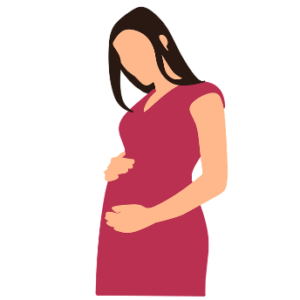
Everyone has heard of the Tdap, DTaP, Td, and DT vaccines, but what do they stand for? When do we receive them? Why are they so important to get? Let’s break it down from letter to letter.
T stands for tetanus. Tetanus is, in other words, when your head and neck muscles are almost impossible to move. This can cause difficulty in opening your mouth, swallowing, and sometimes breathing. This infection is caused by Clostridium tetani; this bacteria normally lives in the soil, dust, and manure. It can be transferred into your body from deep wounds from knives and nails.
D stands for diphtheria. Diphtheria, in other words, is when a thick mucus coats the back of your throat, which can make it difficult to swallow and breathe (kind of like tetanus). This infection is caused by Corynebacterium diphtheriae; this bacteria lives in the mouths, throats, and noses of people which can end up transferring to another person if the infected person coughs or sneezes.
P stands for pertussis. Pertussis is also known as “whopping cough.” This is when you have cough attacks that can cause vomiting and difficulty breathing, which would result in poor sleep quality. This infection is caused by Bordetella pertussis. A person can be infected by it if they have direct contact with fluids from the nose or mouth of infected people.
Next, what does the “a” stand for and why are certain letters capitalized while others aren’t? The “a” in Tdap and DTaP stands for acellular. Now what is acellular, you may ask. Many vaccines contain the entire virus or bacteria that it is protecting the body from, but in some cases, certain parts of the virus or bacteria are used instead of the whole component– so in Tdap, the pertussis bacteria is being partially used. The capitalized letters in both vaccines mark the bacteria that has a higher level than the lower-case letters—DTaP contains high levels of all 3 bacteria while Tdap contains a higher level of tetanus compared to diphtheria and pertussis. Td contains more tetanus than diphtheria and DT contains high levels of both diphtheria and tetanus. Now that we have explained the vaccines themselves, let’s break down when you should receive them!
Vaccine Schedule
1. Tdap
• Preteens between 11-12 years of age should receive 1 dose of Tdap to help boost their immunity after receiving DTaP during their childhood. If you or someone you know has not received a Tdap vaccine by 11-12 years of age, it is recommended to get one dose at their next visit to the doctor’s office or a pharmacy.
• Tdap is also recommending for woman during every pregnancy, see more information on this below.
• Do NOT get Tdap if you are younger than 7 years of age
2. Td
• 10 years after receiving Tdap, every adult should receive a Td vaccine to keep their immunity strong! In case an adult has not received the Tdap vaccine before, they should get the
• Do NOT get Td if you are younger than 7 years of age.
3. DTaP
• Given 5 times throughout a child’s initial years at 2 months, 4 months, 6 months, 15-18 months, and 4-6 years of age.
• Do NOT get DTaP if you are 7 years of age or older.
4. DT
• Given to children who SHOULD NOT receive the whooping cough (pertussis) part of the vaccine such as an allergic reaction to DTaP.
• Do NOT get DT if you are 7 years of age or older.
 You may not like needles or even the idea of vaccines (it won’t cause autism—read here: https://www.publichealth.org/public-awareness/understanding-vaccines/vaccine-myths-debunked/), but it will protect you from the previously mentioned diseases that, if left unvaccinated, could eventually lead to death. It won’t just protect you, but if you are around babies or toddlers (who have not yet been fully vaccinated), you will help protect them as well. It is highly recommended that anyone who is in contact with a newborn should receive the Tdap vaccine at least 2 weeks prior to meeting them, if they have not previously received it. Pregnant women should also receive the Tdap vaccine during every pregnancy during weeks 28-40 (third trimester). The part of the vaccine that is the most important for a newborn to be protected against is pertussis; if they catch the bacteria for whooping cough, it will cause life-threatening reactions and potentially lead to death! We always want to ensure that pregnant women are safe against any bacteria or virus, which would also protect the baby.
You may not like needles or even the idea of vaccines (it won’t cause autism—read here: https://www.publichealth.org/public-awareness/understanding-vaccines/vaccine-myths-debunked/), but it will protect you from the previously mentioned diseases that, if left unvaccinated, could eventually lead to death. It won’t just protect you, but if you are around babies or toddlers (who have not yet been fully vaccinated), you will help protect them as well. It is highly recommended that anyone who is in contact with a newborn should receive the Tdap vaccine at least 2 weeks prior to meeting them, if they have not previously received it. Pregnant women should also receive the Tdap vaccine during every pregnancy during weeks 28-40 (third trimester). The part of the vaccine that is the most important for a newborn to be protected against is pertussis; if they catch the bacteria for whooping cough, it will cause life-threatening reactions and potentially lead to death! We always want to ensure that pregnant women are safe against any bacteria or virus, which would also protect the baby.
Because this is an important vaccine that all children and adults should receive, it’s important that this further be discussed with your pharmacist or a doctor. Any questions? Ask your Bremo pharmacist today or visit our website at https://bremorx.com/.
Arzu F. Moosvi
Virginia Commonwealth University PharmD candidate 2020


